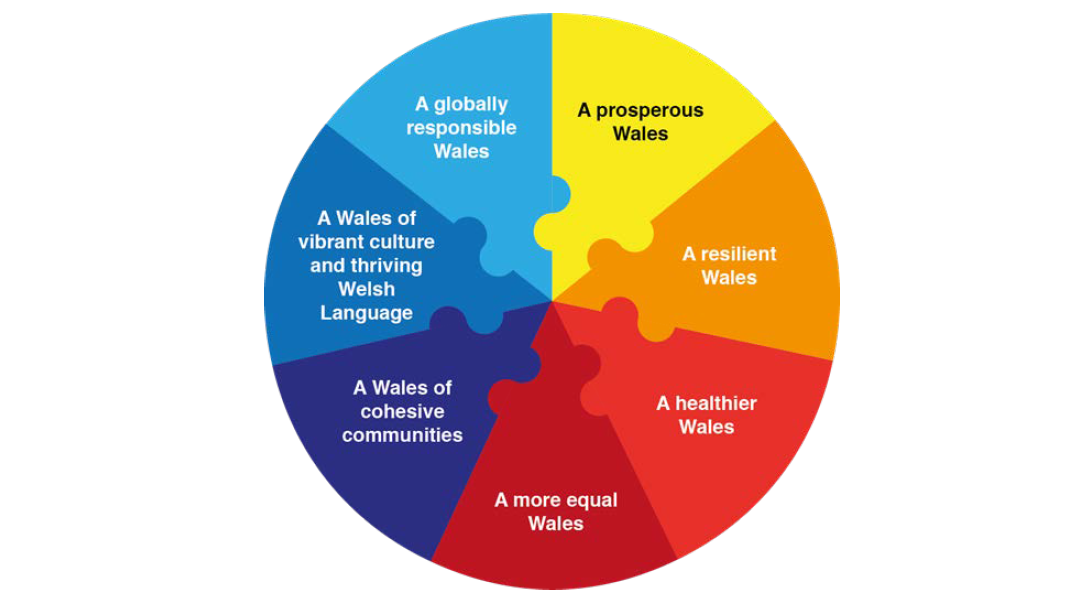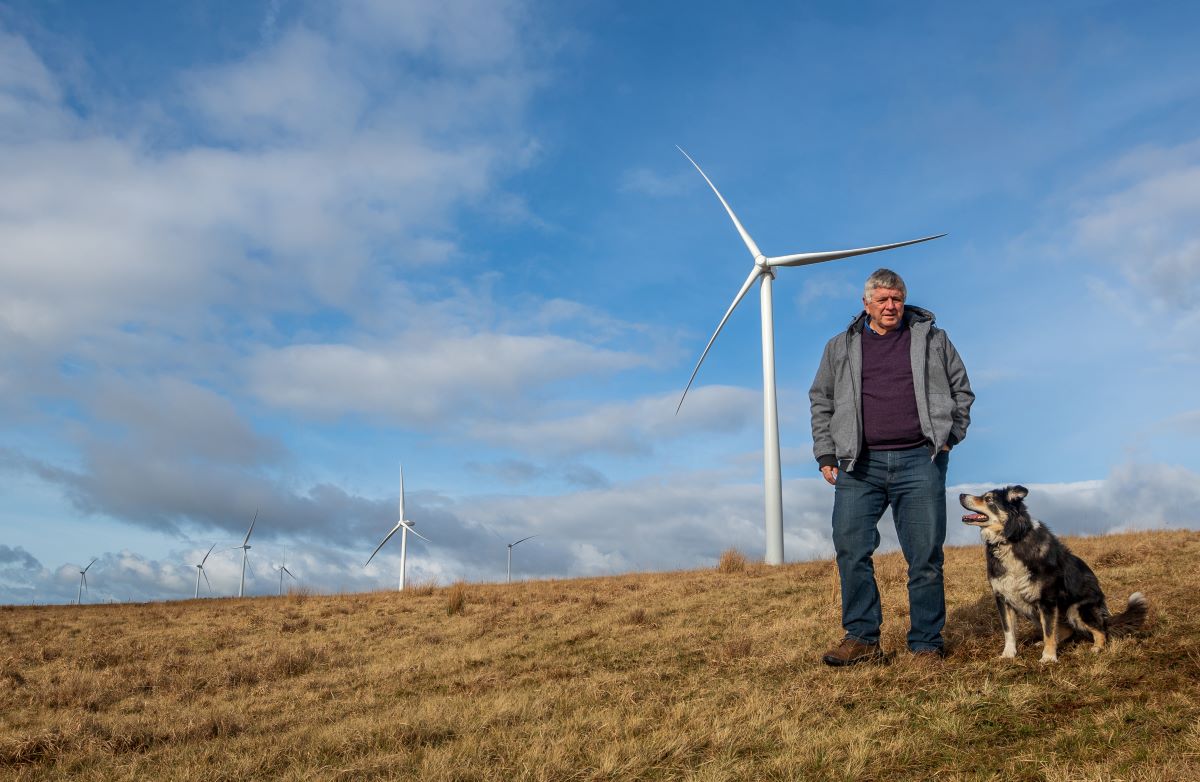‘Decarbonisation offers enormous opportunities to create a vibrant and socially-just economy. We must make a difference and help create a society here in Wales that ensures well-being and tackles inequality as we decarbonise’ Cabinet Foreword, Prosperity for All report.
Wales has only recently developed its own national trajectory for emissions reductions, separate from the wider UK. A key part in the process is the recent publication of the Prosperity for All: a Low Carbon Wales report, which lays out how Wales will tackle carbon emissions in the period up to 2050.
Meanwhile, many people were interested to see that the Committee on Climate Change proposed a slightly lower 2050 carbon target for Wales than England in the Net Zero report. Energy Saving Trust Wales policy officer, Max Lacey-Barnacle, discusses how Wales is developing a distinctive approach to the decarbonisation challenge.

The Welsh Government’s landmark report, Prosperity for All: A Low Carbon Wales, details how Wales will meet it’s 2016 – 2020 carbon budget. The report emphasises connecting issues of social justice and inequality within the impending low-carbon transition in Wales. This confirms an emerging approach to climate change and sustainability policy, where measures to cut carbon emissions are strongly linked to actions on social justice, poverty alleviation, health and wellbeing.
Prior to the Environment Act (Wales) 2016, Welsh carbon emissions were included within the UK total but not reported on separately. Wales is committed to an 80% cut in carbon emissions by 2050. The 80% cut is measured against a 1990 baseline, and is the same overall target as that in place for the UK as a whole. However, that target might rise: the Committee on Climate Change has proposed that the emissions reductions for Wales should rise from 80% to 95%, as part of its thinking on a net zero carbon target for the whole UK.
The Prosperity for All Report provides the first concrete outline of how to achieve the current 80% carbon reduction target, as well as the interim targets of a 27% reduction by 2020, a 45% reduction by 2030 and a 67% reduction by 2040 respectively. It also offers details on the Welsh governments’ methodological approach, which outlines a ‘Wales Accounting framework’ for Welsh emissions.
The report details 100 policies and proposals across a variety of areas linked to Wales growing low-carbon economy. In addition, it features 19 case studies of successful projects or schemes that demonstrate Wales’ commitment to building a low-carbon future in areas such as sustainable housing, renewable energy and low-emission transport.
These case studies include a focus on;
- Wales’ Innovative Housing Programme, in which the second phase (2018) worth £90 million included ‘£839,000 for Wales and West Housing Association to build 14 homes in Bridgend using the Solcer House model’, which produces more energy than it consumes
- a spotlight on Wales’ largest wind power project, Gwynt y Môr, a 576-megawatt offshore wind farm located off the coast of North Wales
- positive news regarding Swansea’s 2018 adoption of 40 new electric vehicles, resulting in the city council playing host to the largest electric van fleet in Wales
Importance for Welsh citizens
But what do these policies and achievements mean for Welsh society?
The report’s focus on social equality connects to broader intergenerational justice goals contained within the Wellbeing of Future Generations Act 2015. These goals require all levels of Welsh government to consider the sustainability implications of their actions, alongside consideration of these seven wellbeing goals:

The report suggests that the Welsh government set up a ‘Climate Justice’ advisory group to oversee the social impacts of decommissioning key fossil fuel power stations, such as Aberthaw power station in South Wales, in order to meet emissions reductions targets.
The report also emphasises that addressing the labour market impacts of the changes in the energy system are a vital concern. Wales’ low-carbon transition is already making headway: the Welsh low-carbon economy is ‘currently estimated to consist of 9,000 businesses, employing 13,000 people and generating £2.4 billion in turnover in 2016’. The Welsh government must sustain this economic momentum to create new jobs and support local economies within the new low-carbon economy, to mitigate against potential job losses arising from the closure of Welsh power plants.
Energy Saving Trust welcomes many of the ambitions contained in Prosperity for All, while supporting the acknowledgement of key social justice issues that arise out of low-carbon energy transitions. We’re proud to deliver the Welsh Government Energy Service, which will be vital to facilitating an expanding civic energy sector in Wales. Indeed, the report sheds a positive light on the Welsh Government Energy Service, alongside commending the achievements of the NEST and Arbed schemes, which Energy Saving Trust helps deliver.
Future developments
The Prosperity for All report is only the beginning of the journey. The next delivery plan is set to be published in 2021. The nature of how exactly Wales continues to decarbonise is intimately linked to the changing powers of the Welsh Assembly, which is set to become the ‘Welsh Parliament’ in 2021. It will therefore be important to monitor how shifting powers, perhaps over even larger energy infrastructures, may change the nature of Wales decarbonisation policies in future carbon budgets.
The Committee on Climate Change (CCC) recommend that Wales should set and meet a 95% reduction target by 2050, as part of the journey to a net zero carbon target for the UK. In England, the CCC proposes a net zero (100%) target by the same date, and in Scotland, a net zero target by 2045. Wales has a slightly lower thanks to three key areas of difficulty:
- the presence of a higher proportion of heavy industry than in other UK nations
- fewer opportunities for CO2 storage across Wales
- the importance of livestock and agriculture.
The CCC’s report on Net Zero endorses Wales’s approach to tackling carbon emissions and the unique Well-being of Future Generations Act, ensuring that its recommendations demonstrate that “actions to reduce emissions can deliver significant benefits against Wales’s global responsibility, resilience, health, prosperity and well-being goals.”
Given both the Prosperity for All and the CCC Net Zero report are clear on linking up concerns around wellbeing and inequality with decarbonisation in Wales, future policy plans will need to factor in deeper fuel poverty and energy justice concerns, to ensure the potential prosperity brought about by new low-carbon innovations is indeed shared by all.
While Wales has good fuel poverty programmes, it currently lacks a long term strategy for promoting energy efficiency in homes of low income households. A new fuel poverty strategy due next year must be a key starting point for providing greater detail on how Wales will achieve a “just transition”.
In addition, Wales’s Sustainable Transport Strategy, due in 2020, must address how the transition to cleaner transport will also tackle problems of transport poverty, likely to be particularly acute in Wales’s rural areas.
Future reports would therefore benefit from a much greater focus on how Wales intends to achieve justice in the energy transition, as this is vital to realising the goals contained within this landmark report.
- read more about our policy work
- programmes Energy Saving Trust delivers in Wales
- more on how Wales is working towards a sustainable future
